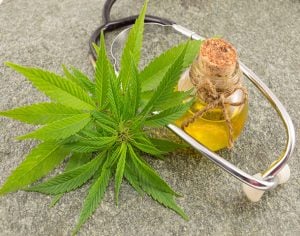
With the growing popularity of hemp-derived cannabidiol (hemp CBD) products in e-commerce, the U.S. Patent and Trademark Office (USPTO) has seen a significant influx of trademark applications used in association with CBD goods. However, many of these applications have been denied by the USPTO. This article briefly addresses the reasons for these denials and discusses the trademark protections currently available to the industry.
To secure federal trademark registration, a mark’s use in commerce must be lawful under federal law.
Although the Agricultural Improvement Act of 2018 (the 2018 Farm Bill) legalized the production of hemp and hemp derivatives, including hemp CBD, by removing hemp from the Controlled Substances Act’s definition of marijuana, the new law did not legalize the production of hemp CBD products. Instead, the 2018 Farm Bill expressly preserved the FDA’s authority to regulate these products under the Food, Drug and Cosmetic Act (FDCA).
As I have discussed in this column (here and here), the FDA takes the firm position that it is unlawful to sell and market in commerce CBD food and dietary supplements, pursuant to the FDCA and the Drug Exclusion Rule. Specifically, the FDA argues that because CBD was approved and investigated as a drug ingredient before it was sold and marketed as a food or a dietary supplement, these products may not be lawfully introduced in commerce. Consequently, the USPTO, which defers to the FDA’s position, opines that “registration of marks for foods, beverages, dietary supplements, or pet treats containing CBD will still be refused as unlawful under the FDCA, even if derived from hemp.”
Cosmetics containing hemp CBD, however, are in a more ambiguous space, as the FDA has indicated that the sale and marketing of these products may be permissible. In guidance released on its website, the FDA provides that this category of product is lawful so long as they are not adulterated, mislabeled, or intended to affect the structure or function of the body, or to diagnose, cure, mitigate, treat, or prevent disease (i.e., intended as a drug).
Therefore, when applying for federal trademark protection, hemp CBD companies must be very clear about the type of cosmetic product they are selling and wanting to protect. For instance, while a hemp CBD cosmetic product in Class 003 (soaps, perfumery, essential oils, cosmetics, hair lotions, and dentifrices) may be acceptable and eligible for protection, a hemp CBD salve intended to relieve muscle soreness in Class 005 (pharmaceuticals and other preparations for medical or veterinary purposes) won’t likely qualify.
So how can hemp CBD companies protect their brands when federal trademark protection is unavailable?
One option is to secure registration for ancillary goods or services that do not violate federal law. For example, if a business manufactures a hemp CBD beverage and produces and sells a non-CBD-infused version of that beverage, the business may possibly secure a federal trademark registration that will cover the non-CBD-infused beverage.
Another strategy is to obtain a state trademark registration in a state where the sale of hemp CBD products is allowed. Even though state trademark protection is geographically limited to the state of the registration, state trademarks tend to provide more protection and legal remedies than common law rights. Common law rights are almost always limited to the geographic area in which a mark owner is using the mark, which means the mark owner needs to register that mark in order to benefit from the statutory remedies available in infringement cases.
So, until the FDA revisits its policy on the sale and marketing of hemp CBD products, particularly foods and dietary supplements, the industry will need to rely on ingenuity and trademark attorneys well-versed in hemp and CBD law to protect their brands.
Nathalie Bougenies practices in the Portland office of Harris Bricken and was named a “2019 Rising Star” by Super Lawyers Magazine, an honor bestowed on only 2.5% of eligible Oregon attorneys. Nathalie’s practice focuses on the regulatory framework of hemp-derived CBD (“hemp CBD”) products. She is an authority on FDA enforcement, Food, Drug & Cosmetic Act and other laws and regulations surrounding hemp and hemp CBD products. She also advises domestic and international clients on the sale, distribution, marketing, labeling, importation and exportation of these products. Nathalie frequently speaks on these issues and has made national media appearances, including on NPR’s Marketplace. Nathalie is also a regular contributor to her firm’s Canna Law Blog.

